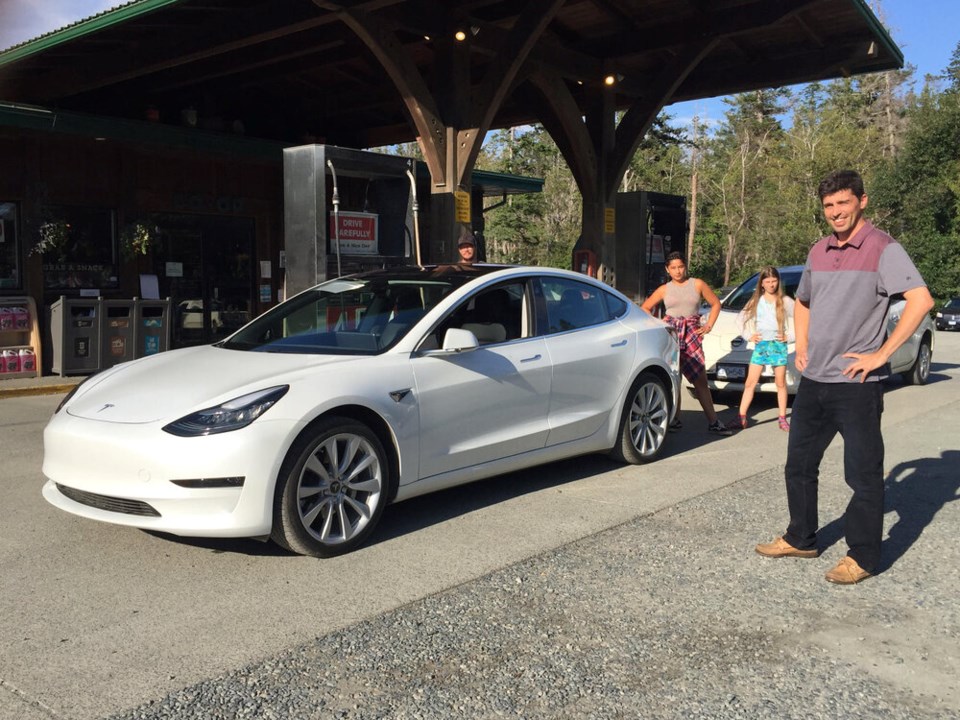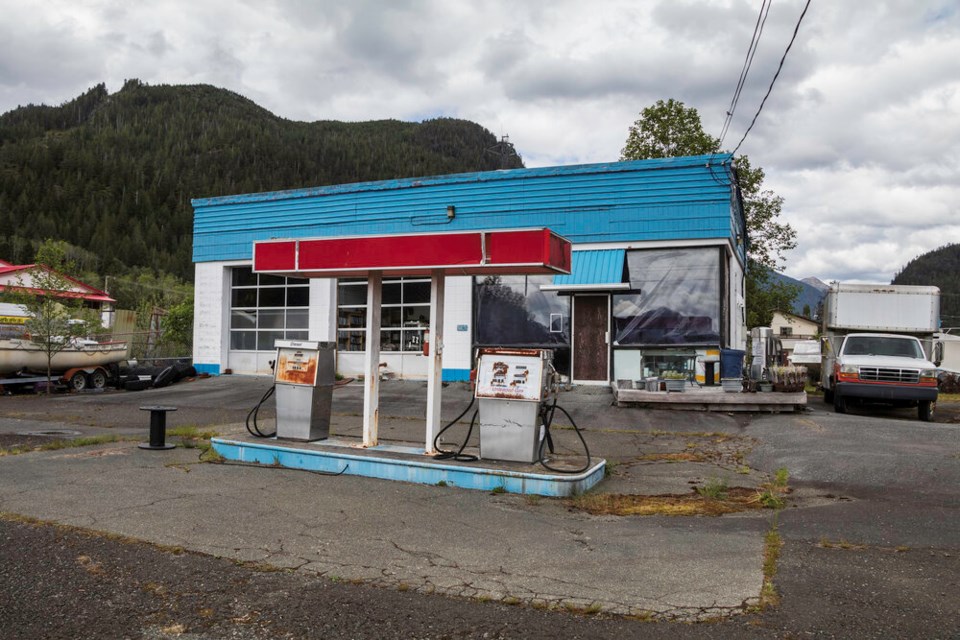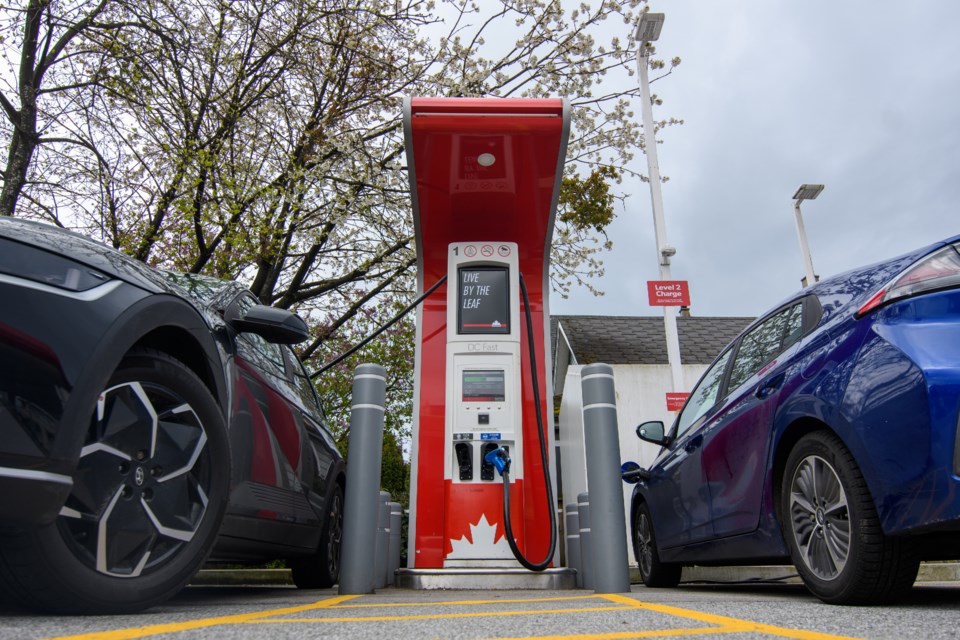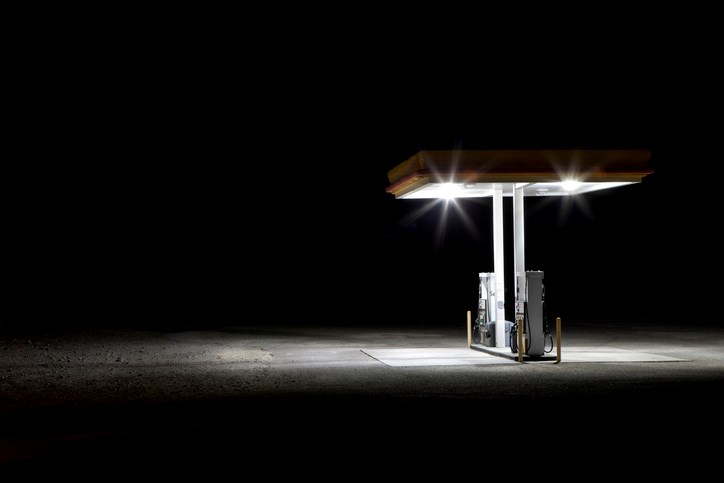Up to $8,000 in electric vehicle rebates.
A national target to ban the sale of new fossil fuel-powered cars by 2035.
More fast chargers at work, on the side of the highway and in your condo.
Governments at every level in Canada are racing to get people out of their gas-powered cars and onto a bicycle, bus — or if you have the money — anything electric.
But with car culture woven into the fabric of North American culture, is it time to turn off the tap?
It’s a question at the heart of a growing movement of cities opening up a new front in the fight against climate change. Nearly 1,300 kilometres down the coast from British Columbia, a city in Northern California opposed attempts to build new gas stations in their community. They fought back — and won.
As Canada moves closer to banning the sale of new fossil fuel-powered vehicles, California's experience pushing back against new gas stations bears lessons for cities in British Columbia.
‘I felt as though I had to approve it’
In Petaluma, Calif., the unbridled growth of gas stations came to an end at a local Safeway.
About 50 kilometres north of San Francisco, the city of about 60,000 people faced a plan to install a new 14-pump station.
“We could not request further environmental analysis and we were really concerned with the impact of that station and the traffic on the daycare centre and the elementary school right across the street,” council member D’Lynda Fischer told Glacier Media.
Gas stations tend to cluster in Californian zip codes with lower median incomes, according to public data collected by the anti-gasoline non-profit Coltura. In many cases, the highest concentrations of gas stations were built in predominantly Black communities or those with high concentrations of people of colour.
The Petaluma neighbourhood surrounding the proposed Safeway gas station fit the same pattern, said Fischer.
“Legally, I felt as though I had to approve it,” she said. “I didn't want to have to do that again.”
At the next city council meeting, Fischer called for a temporary moratorium on new gas stations within city limits.
When council learned in a staff report that the city’s 14 gas stations were already within five minutes of any driver, they moved to eliminate zoning permissions for new gas stations.
On March 1, 2021, Petaluma ushered in a full and permanent ban — a North American first.
Across the United States and Canada, emissions from transportation make up roughly a quarter of the two countries’ carbon output. But emission reduction plans are often formulated at the federal, state or provincial levels.
That's changing. Over the last year, almost a dozen cities across California and New York either have or are planning to change bylaws to stop new gas stations from opening.
In Sonoma County, the cities of Sebastopol and Rohnert Park have put their own bans in place only a few kilometres away from Petaluma. The cities of Bethlehem, N.Y., Santa Rosa, Calif., and several others are also developing their own bans.
To date, most of those cities have been small. But next month, the debate will land at the feet of the City of Los Angeles, perhaps the most iconic mecca for car culture in the world.
In a motion proposing the gas station ban, L.A. council member Paul Koretz called for a “transition away from gasoline and natural gas” fuelling stations.
“The end of the internal combustion engine vehicle is in sight and cities must prepare accordingly,” said Andy Shrader, Koretz’s director of environmental affairs, water policy and sustainability.
“Cities should not be left to fund and clean up the , just as cities should not have to fund and clean up the industry's climate mess, but here we are.”
In С����Ƶ, two governments look to enact early bans
The idea of banning new gas stations popped into Daniel Arbour’s head around 2019. At the time, a number of С����Ƶ cities were declaring climate emergencies — a statement that he thought should be backed up by immediate and drastic action.
“If it's an emergency, maybe the municipalities should pull business licences for gas stations,” joked the Comox Valley Regional District (CVRD) director at the time.
Then 2021 came along, a record heat wave hit the province, and Arbour thought, “We're just not keeping pace in Canada.”
Months after Petaluma passed its ban, Arbour called for Canada’s first ban of its own.
A staff report released nine months later found the easiest path to banning new gas stations in the 65,000-resident regional district would be to amend a bylaw so that the definition of an "Automobile Service Station” excludes the sale of petroleum-derived fuels.
In addition to electric energy, the change would also allow for the sale of hydrogen fuels.
As a result, the region’s 14 existing gas stations would become “legally non-conforming," meaning they could continue on as usual, but would not be able to expand.

While the report found such a move would encourage widespread adoption of zero-emission vehicles, CVRD staff also warned that approving a ban on new gas stations could push them into the neighbouring small cities.
"The lesson in California was this will work, really work, if it's done regionally — just not you know, one tiny jurisdiction here and there,” said Arbour.
"So I approached the three municipalities in our area to see if they wanted to do it.”
Arbour said he’s looking to pass the zoning changes in the first half of 2023, when the CVRD is planning to update a range of bylaws.
On June 27, Cumberland city councillor Jesse Ketler to council, calling on the city to consider a regional approach to new gas stations.
Balancing decarbonization with affordability
Cumberland has emerged as a destination for many people looking to flee cities like Vancouver, Victoria or Calgary. The village grew 18.5 per cent between 2016 and 2021, something Ketler says has remade the fabric of the community.
“We used to be one of the most affordable places to be on Vancouver Island,” she said. “We’ve flipped the script on that.”
While many newly arrived families may be able to afford a new home and electric vehicle, others who have lived in the town for generations on fixed incomes still rely on second-hand gas-powered trucks and cars.
“Being ecologically friendly also comes with a high price tag. There’s a privilege that comes with having a lot of money — you can buy the EV, you can buy organic, do all the things that are good for your soul,” she said.
“Whereas people on fixed income look at this change coming and say, where does that leave me with my probably 10-year-old vehicle and no ability to change?”
Still, says the councillor, that doesn’t mean the fast-growing city shouldn’t act to prevent a potential third gas station from going in next to the highway.
“It just doesn’t make sense to put in any more infrastructure if you’re trying to steer people away from it,” she said.
Cumberland council and staff haven’t set a date to review the community charter and any potential changes to the city’s zoning bylaws, but Ketler says she expects it to go forward next spring, around the same time Comox Valley’s regional government will weigh the policy.
Ketler says that if the community supports the policy and the city is successful in banning new gas stations, she would take it to the Union of С����Ƶ Municipalities.
“We don’t need the province as long as the community is supportive,” she said.
“Local governments are usually pretty cautious. But once a model has been set... I think other municipalities will follow.”
Will banning new gas stations actually get people out of gas cars?
Back in Petaluma, plans for the Safeway gas station were eventually abandoned and no new applications for gas stations have been submitted to the city since, said Fischer.
Banning new gas stations clearly means fewer brownfield sites to clean up later; less local pollution; and less money spent on infrastructure which will be phased out over the coming decades.
Fischer says it’s still too early to measure how banning new gas stations has affected locals’ driving habits.
Others, however, have uncovered data showing population-level shifts in driving behaviour based on how many gas stations were nearby.

Matthew Metz, who in 2016 and was one of the first people to call for a ban on new gas stations in the U.S., says his organization is one of the first to calculate gasoline consumption of almost all the vehicles in California by zip code.
Collecting data from the California DMV and California Energy Commission, the Coltura analysis compiled roughly 50 million transactions on everything from the sale of vehicles to smog checks. Together with data on gas stations, the odometer readings offered a window into driving habits.
The analysis shows gasoline use in California was on average over seven per cent higher in zip codes with the most gas stations.
Reducing the number of gas stations in a neighbourhood, suggests the data, could make people drive less and therefore, produce fewer emissions.
“It basically shows the more gas stations are around you, at least statistically, you're more likely to use more gasoline,” said Metz.
In other words, while the data doesn’t show a causal link, Metz says it suggests the more you add to the gasoline economy, the more it grows.
“In a way it's like a muscle — you keep exercising the muscle, the veins and the arteries and everything that services that muscle are going to grow.”
The limits of a big city
Just how much banning new gas stations could prevent an overall increase in gas consumption across Canada is less clear.
The number of gas stations across Canada dropped 40 per cent in the 1990s and early 2000s. But over the past decade has tended to hover around 12,000.
As of Dec. 31, 2021, 11,934 retail gasoline stations were operating in Canada, an increase of 26 sites compared to the previous year, according to a 2021 survey from National Retail Petroleum Site Census.
That’s one gas station for every 3,200 Canadians, fewer than the U.S. but more than twice the per capita coverage of the European Union.
And while the survey found С����Ƶ had 1,392 gas stations by the end of 2021 — the highest number in a decade that has seen little change — in many big cities, building new gas stations has become a rare event.
According to data from the City of Vancouver, the city registered 69 gas station business licences in 2022, down from 94 in 2016 (a staff report later adjusted that to 66 remaining gas stations).
No new gas stations have opened in Vancouver over the past five years, confirmed a spokesperson from the city.
“It's not the move that will make the biggest impact in Vancouver,” said Vancouver councillor Christine Boyle, who had asked staff to look into a ban as early as 2019.
Instead, council approved a plan this spring to if they fail to provide electric vehicle charging stations.

Boyle said she would like to see a timeline for eliminating gas stations altogether, but until then, she said it makes more sense for urban areas to improve active and public transportation.
It’s a sentiment echoed by Dustin Hogan, a banking consultant who used to work supporting the oil industry in northern Alberta.
At a Chevron gas station at the entrance to the Trans-Canada Highway, the Coquitlam father said banning new gas stations anywhere across a growing Metro region is missing the bigger picture.
“It’s only creating longer lines,” he said. “The real conversation is, why aren’t we spending more on mass transit? We need a train to Chilliwack. There’s a lot more people who don’t want to drive.”
For Karan Manan, a recent immigrant and taxi driver who drives 500 kilometres a week, it all comes down to how much money he's left with to support his family.
“I still believe in a gas car... I just bought this car,” he said, pointing to a recently purchased sedan. “I’ll be able to drive this for another 20 years.”
At the same time, if personal finances allow it, Manan said he’d consider making the shift to electric.
“My family is my priority. I have to feed my family. If I can save money, that’s good for me.”
Questioning the status quo
Since the rise of the car, buying a litre of gasoline has been a lot like buying a loaf of bread — it’s what needs to be done to survive.
But in the coming years, questioning the indefinite presence of gas stations — whether in a city, town or side of the highway — is part of a bigger psychological shift every consumer will eventually go through, said Metz.
“Having these new gas station bans really starts to raise questions in the public mind about what the future of gasoline is. Do we want a gasoline-dependent society? Do we want to perpetuate that system? Those questions really haven’t been asked at the local level ever.
“When that sort of idea starts to take hold, it could have political ramifications beyond just one gas station.”





